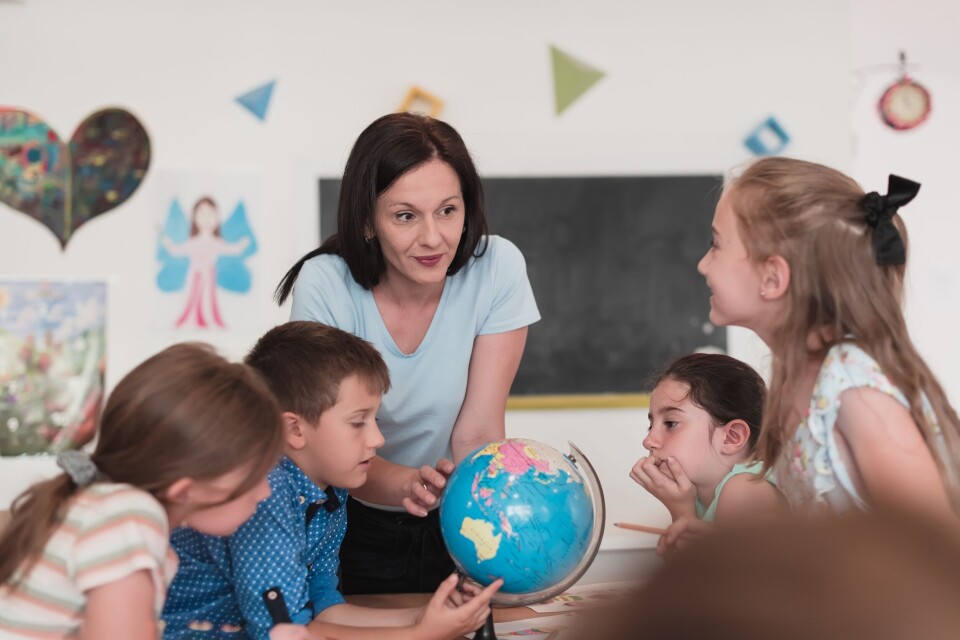-
La rentrée: 12 points to understand French schools
From food to bullying - some things may surprise you about the education system in France
-
The French school where children learn and study outside
We visit a ‘forest school’ where the focus is on an alternative education model
-
French school year 2025-2026: the changes that await pupils
Reforms on how French and mathematics are taught as well as expanded sexual education, stricter rules for mobile phones and more
Stricter laws have not put us off homeschooling in France
James Tetley, based in Auvergne-Rhône-Alpes, explains why he and his wife Jayne chose to educate their four children at home, and how it has been working out

We moved from Greater London to France in 2014, and chose to live in the Pays de Gex area of Auvergne-Rhône-Alpes because of my work.
At the time, Grace was eight, Eliana was six and Stephen was three, and as we had already been homeschooling the girls in England, we continued to do so when we moved.
A move to France and continuing education
We opted to send Stephen to the local school so he could pick up the language. However, we found that some of his learning needs were not being met and he was not enjoying his experience. So, after 18 months, we decided to teach him at home as well.
Registering your children for homeschooling in France can be very complicated, but we were fortunate to know another family who were already homeschooling and they gave us copies of the declaration letters they had submitted to the relevant authorities. This made the initial process easier for us.
Flexibility and individualised learning: benefits of teaching at home
When you teach your children at home there is more flexibility. You can adapt the hours and the curriculum to the age and abilities of each child, as well as their individual learning style.
We have a timetable for each of our children but we build in flexibility, depending on their progress.
Lessons each day usually include the essentials of maths, English and French, but the children are always involved in creating the curriculum and timetable.
Curriculum and resources: adapting to different approaches
In terms of content, we initially continued with the resources we had been using in the UK, as we were familiar with them. However, when our daughters did their IGCSEs and international baccalauréat we started using Wolsey Hall and King’s InterHigh.
We have stuck to a single approach for maths, the Singapore Method, because we always found it to be an excellent system that allowed our children to understand practical maths before moving to the abstract processes.
For history and English, we have used different resources, including the Sonlight curriculum.
Changing policies and challenges
Recent changes to government policy in France have introduced additional restrictions. Now, instead of simply making a declaration that you intend to educate your child from home, you have to ask for permission.
They are looking for justification, such as specific health or disability reasons, if your family moves around too frequently to attend school, or if your child has a particular talent in sports or art that requires intensive practice.
As we were already homeschooling, we were initially exempt from this. Next year, however, we too will be required to submit a justification. Being a foreign family is not sufficient so we will likely explain we are looking to provide a bilingual education, as our children have their eye on returning to the UK for their higher studies.
Personal experiences and perceptions: homeschooling in a foreign country
For us, homeschooling has definitely been one of the more challenging aspects of moving to France.
The inspections are always a little unnerving as it is never 100% clear what is being evaluated, and, of course, they are conducted entirely in French, which was tough when we first arrived. We also found that the level of support and understanding you can expect varies, depending on the individual inspector.
Another challenge is that resources are much harder to come by because you are outside the conventional education system. For example, if your child has special needs or dyslexia, you could be on a waiting list for two years before you see someone.
Homeschooling remains quite rare in France and many view it as something strange. They assume our children must have no social skills or friends! That said, Covid gave many parents their own experience in homeschooling and after that I sensed a growing respect because they realised how difficult it is.
The rewards of homeschooling in France
Now Grace is 17, Eliana is 14, Stephen is 12 and our youngest, Joy, is six, so they are all at different stages in the education system.
Learning at home has meant we can tailor their education and, despite the complex process, we would do it all again. It has been a very fulfilling experience, allowing each child to develop at their own pace and focus on specific interests to help them in their future.
Related Articles
How does private education and home-schooling work in France?
Why new legislation is making it harder to homeschool in France
























